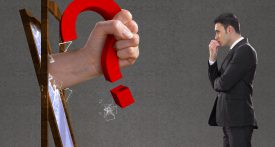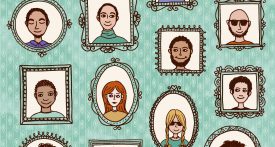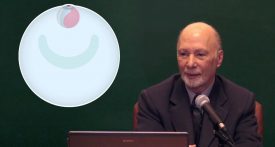87
Vote
Not settling for the mere condition of a human-animal and developing the qualities that will make us truly human, such is the ultimate task facing us. The pressing challenge, though, is to prevent Bob, our “inner bonobo”, to end up taking control. So much of our behaviour already bears its mark! Practically speaking, we need to imagine the worst and take the initiative, in other words strive to take control of our self. Only on this basis can we work toward cultivating our humanity.
Read more
111
Vote
There is no Nobel Prize (to date) rewarding ethics research, but surely no one would dispute that in this field Ostad Elahi was perfectly learned. What is meant here by the word “learned”? Being learned is not merely knowing. A learned individual is first and foremost one who comprehends, not in theory only or through sustained reading, but as a result of self-acquired concrete knowledge. To comprehend a reality is to have concretely experienced it, to have gained first-hand knowledge of some truth. Indeed, when Ostad Elahi addresses any topic, you have a distinct sensation that he is speaking from personal experience.
Read more
226
Vote
According to Ostad Elahi’s model of the self, we are bi-dimensional beings. We carry within ourselves a celestial part that, combined with our animal terrestrial part, forms our humanity. It is within this intimate combination—perhaps best compared to fertilization (when two gametes, or sexual cells, one male, the other female, unite to form a new zygote)—that our psychological and spiritual personality is forged. It is a crucible for our character traits and for the powers within us. In this equation, also lies the enigma of free will, in other words the question of evil
Read more
241
Vote
From a perspective of ethical perfection, to see ourselves in the mirrors of others is to take everything that emanates from them (actions, words, behaviour, etc.) as means to better know ourselves. Such was the general conclusion reached by Sandrine Duplessis in the first part of her inquiry. In this second part, the author gives us a few pointers as to how to concretely put this into practice.
Read more
227
Vote
“Know thyself”. This is certainly a beautiful maxim, but how can we expect to achieve such an end when part of ourselves is resisting so vigorously and preventing us from seeing our own faults? It is a fact: we tend to systematically overvalue ourselves and we are much more sensitive to the ethical wrongdoings of others than to our own. This two-part article by Sandrine Duplessis suggests that the solution may well lie in the problem: it is by changing our behaviour toward others that we may come to achieve a more lucid knowledge of ourselves.
Read more
559
Vote
Nested in the cocoon of our ego like silkworms, we are unaware of what we really are. Bahram Elahi develops the metaphysical as well as ethical implications of this striking image. The reality of the self consists in a plurality of functions and levels of consciousness in dynamic interaction, as illustrated—in figures—by the polarity between “surface conscious self” and “deep conscious self” (“inner guide”). Some key-ideas to help us break the cocoon…
Read more
662
Vote
How come we feel so upset when our beliefs are not shared by others? Why should disagreement over our convictions get us so often into trouble with one another? How do we come to despise or detest someone only because they disagree with what we say? When our freedom of thought is not at stake, […]
Read more

 News
News Podcast
Podcast










Recent Comments